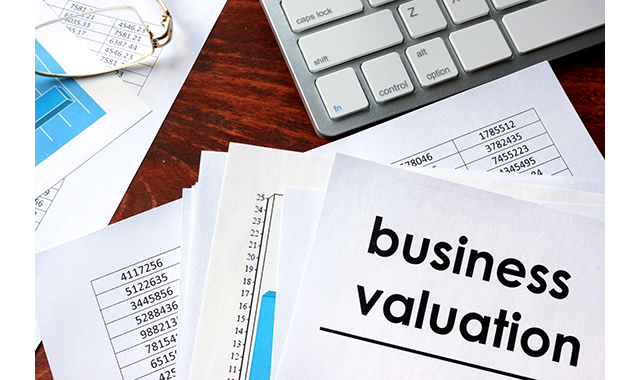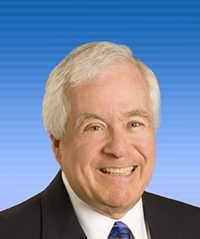The importance of knowing an evaluator's credentials
Don’t send a general business evaluator to prepare a dental practice valuation for any topic unique to dentistry.


It is important for an organization to retain an independent evaluator to prepare a business appraisal for a multitude of reasons. Various purposes why this valuation may be necessary include the sale of the enterprise, a divorce, an estate planning tool, raising equity capital or any other process that the owner or key participants in the business may need.
The independent valuation expert will offer an opinion that is unbiased, honest and will give a fair idea of the value of the entity. The offering that the evaluator presents will be based on his or her experience in the field and supported by comparable activity involving similar businesses in the marketplace. This may be from private or public resources.
The key to accuracy is to make sure that a certified valuation analyst is the one who is engaged to prepare the valuation. The reasons include but are not limited to the education, standards that must be maintained and knowledge of the field of business that is being evaluated. Many owners may not want to spend the money to obtain the valuation, but that is not long term thinking if any third party is interested in the content of the appraisal.
Differences between the dental world and other businesses
There are of course some similarities when comparing non-professional businesses to a dental practice. There are however, some greatly divergent approaches when preparing a dental practice valuation for any purpose to the value of a business. Even professional businesses such as law, engineering, accounting, and architecture have different valuation methodologies that must be considered when a valuation of a certain business is desired.
The most obvious example of a comparison when contrasting a dental practice with a business that has inventory is the analysis of the goodwill portion of the enterprise and the value assigned to it. Many states use equitable distribution rules when determining the personal goodwill of a dental practice compared to the enterprise or dental practice goodwill value, directly. There can be differences in the high thousands of dollars when approaching a courtroom and arguing for either value to be attributed to the higher amount in a trial that has a divorce as its purpose.
Dental practices typically have goodwill or intangible values between 50 percent to 75 percent of their eventual acquisition price. Determining how much is enterprise or the dental practice compared to the personal goodwill or the owner’s personal asset is a major consideration. This is especially true for a sole proprietorship where there is only one dentist or two who are the owner or owners.
How does the dental practice differ from the business that has a large inventory?
Since most dental offices have key employees or owners involved with the customer/patient, on a direct basis, those coming to see the dentist develop a relationship with the personnel who frequently or almost always see the patient. The business with the inventory would most likely have lower level employees at the counter selling to those who come to the store. Delivery of the inventory to the customers who buy the most are the only ones likely to have the opportunity to see any key personnel. There is almost never a relationship developed to support any type of personal goodwill. The reason for the customer coming to the store or receiving a delivery is probably the price of the product or the convenience of the location and speed of receipt of the merchandise.
A summary conclusion is that dentists must build personal relationships for revenue growth while businesses with product depend on price and speed in turning over the inventory for profit. The name of the company with the product may have a good reputation so that the enterprise goodwill may be available, but the ability to meet key people or the owner is a rare occurrence.
Preparing the dental practice valuation and noting normalizing adjustments when comparing it to a general business appraiser’s approach
When approaching a mediator or if making a presentation to support the dental practice valuation in the court room, an important step is to consider the normalizing adjustments necessary to accurately portray the value of the dental practice. A general business evaluator will not understand that lunches, seminars, educational costs, retirement plans, having children on the payroll, higher than industry standard dental supply costs, and lab fees should be added back to normalize profits. The general business evaluator will comment that the seminars, educational costs, and the other charges are good for the dental practice and helpful to the employees.
It is important to remember that the normalization adjustments are necessary for the certified financial analyst who is preparing the dental practice valuation to include in order to accurately describe what the “hypothetical buyer,” will be looking at when analyzing whether to pursue the acquisition of the subject practice. The previous expenses are not necessary for the operation of the dental practice. They may be helpful to the continuity and its success, but they will certainly be added back when the potential acquirer decides about whether the practice is worthy of a purchase.
The general business evaluator will not understand that these are necessary adjustments since they are not necessary for the operation of the dental practice. What normalization adjustments are made by the general business evaluator without dental practice knowledge who attempts to evaluate a dental practice?
Where does the business evaluator look for information?
It is common for a general business evaluator to review excellent sources of information about business expenses and ratios to gross revenue and to asset values. These unfortunately are not what the dental profession uses for supporting sources of value. Because of the unique approach to evaluating the worth of a dental practice, specific dental practice support of presentation should be addressed. Compared to a business with inventory or some other non-professional business such as a manufacturing enterprise, the dental practice should have an experienced dental practice evaluator prepare the valuation with good supporting credentials.
How Dentists Can Help Patients Navigate Unforeseen Dental Care
December 12th 2024Practices must equip patients with treatment information and discuss potential financing options before unexpected dental treatments become too big of an obstacle and to help them avoid the risk of more costly and invasive procedures in the future.